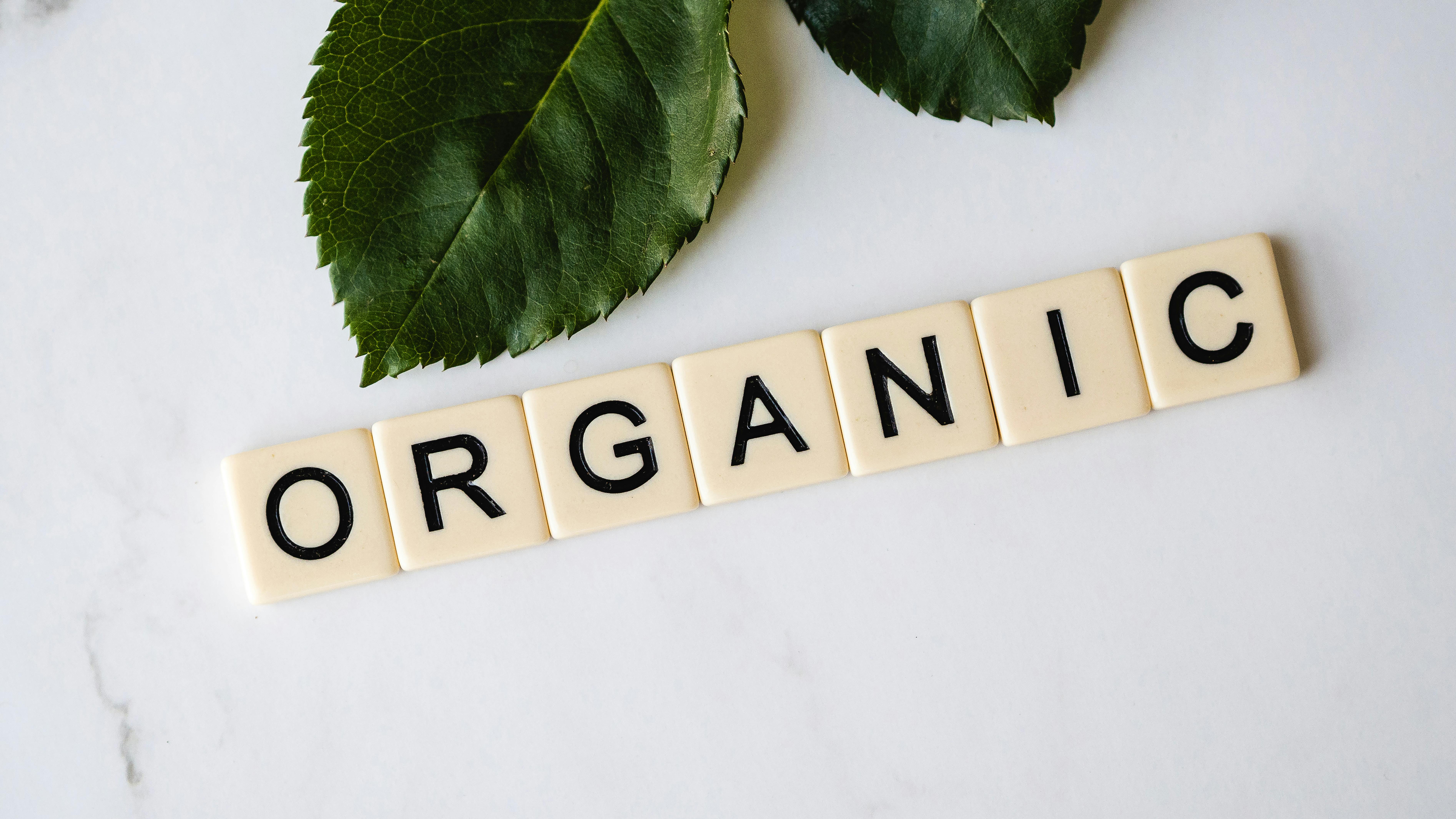Sponsored Content
Authorised antioxidants in food and nutraceutical organic products
9 Sep 2024
Protection against oxidation is crucial for maintaining freshness and nutritional quality in organic products.
Learn about EU and US regulations governing their use and explore innovations like Tocobiol® Organic by BTSA, a 100% organic tocopherol-based antioxidant offering flexibility without compromising ecological integrity.
Optimize your organic formulations with certified natural solutions!

Extending the shelf life and ensuring organic products’ protection against oxidation requires using technological antioxidants. Moreover, these products must comply with strict regulations to ensure their organic integrity. While the ideal scenario involves using only organic ingredients the reality is that we cannot always find natural ingredients with the desired functions.
This article explores the various antioxidants authorised in organic food and nutraceutical products, examining their regulatory frameworks in the EU and the US.
Furthermore, we will highlight innovative products like BTSA’ Tocobiol® Organic, which provides a fully organic solution for antioxidant needs, allowing manufacturers greater flexibility within the non-organic allowance.
Regulatory frameworks for antioxidants
Antioxidants are crucial in food and nutraceutical products because they can prevent oxidative damage, which can lead to spoilage and loss of nutritional quality. By inhibiting oxidation, antioxidants extend the shelf life of products and preserve their health benefits. This is particularly important in organic products, where synthetic antioxidants are restricted.
An antioxidant is considered organic when it is derived from organically grown plants or animals, processed without synthetic chemicals and certified by an accredited organic certification.
In the European Union, organic products are controlled by Regulation (EU) 2018/848. This regulation allows up to 5% of non-organic ingredients in organic products, provided these ingredients are included in a specified list of authorised substances.
In the United States, the National Organic Program (NOP), administered by the USDA, sets the standards for organic products. Similar to the EU, the NOP mandates that organic products must contain at least 95% organic ingredients. The remaining 5% can be non-organic if they are included on the National List of Allowed and Prohibited Substances.
Non-organic antioxidants authorised in organic products
The use of non-organic antioxidants in organic food products is strictly regulated to ensure they are only used when necessary and in the smallest amounts required to achieve their intended effect. Moreover, these antioxidants must be derived from natural sources whenever possible, even if they are not certified organic.
Antioxidants authorised: Tocopherol-rich extract (E306)
One of the key non-organic natural antioxidants authorised for use is the tocopherol-rich extract, also known by its additive code E306. Even though it is not certified organic, it comes from a natural origin, such as vegetable oils, and it is used to prevent the oxidation of fats and oils in food products, thereby preserving their quality and extending their shelf life.
Antioxidants authorised: Ascorbic acid or vitamin C (E300)
Ascorbic acid, also known as vitamin C and designated as E300, is another antioxidant permitted in organic food products that plays a crucial role in preventing oxidation and maintaining the freshness and nutritional quality of food. It can be naturally derived from fruits and vegetables or synthesised. It is utilised for its ability to inhibit enzymatic and non-enzymatic oxidation processes, which can lead to the browning and deterioration of food products.
Antioxidants authorised: Citric acid (E330)
Citric acid, designated as E330, is a weak organic acid naturally found in citrus fruits. This is permitted in organic products provided it is used in limited quantities necessary to achieve its technical function. Its use is typically allowed when derived from non-GMO sources and produced without synthetic solvents. Sodium ascorbate, designated as E301, is a sodium salt of ascorbic acid. It is used for its antioxidant properties to maintain the colour and freshness of food products.
Organic antioxidants authorised in organic products
Organic antioxidants commonly used in organic food and nutraceutical products include rosemary extract, grape seed extract, and green tea extract.
Ascorbic acid and tocopherol-rich extract can also be classified as organic antioxidants if they meet the stringent standards required by organic product regulations.
In particular, for ascorbic acid to be considered organic, it must be derived from organically grown fruits and vegetables, such as citrus fruits, strawberries, or bell peppers. These plants must be grown according to organic farming practices, which promote soil health, biodiversity, and ecological balance. The processing of organic ascorbic acid involves methods that avoid synthetic additives and preservatives, ensuring the antioxidant maintains its organic certification.
Similarly, when tocopherol-rich extract is labelled as organic, it means that the tocopherols are derived from plants grown without synthetic pesticides, herbicides, or fertilisers. The extraction process for organic tocopherol-rich extract must also avoid synthetic solvents and chemicals, instead using natural methods such as cold pressing or natural solvent extraction.
Tocobiol® Organic as an organic authorized antioxidant
BTSA’ Tocobiol® Organic meets all these requirements and represents a significant innovation in the field of organic antioxidants for food and nutraceutical products. It is a technological antioxidant unique in the market, developed exclusively by BTSA, a global company with over 30 years of experience developing natural ingredients, and leaders in natural antioxidants and vitamin E.
Tocobiol® Organic is the first tocopherol-based antioxidant certified 100% organic according to EU and US regulations. As entirely organic, it does not count towards the 5% non-organic ingredient limit established by the regulation and can have unlimited use in organic food and nutraceutical products.
Tocobiol® Organic provides, thus, high flexibility to organic products’ formulations. This allows formulators to include other essential non-organic ingredients, such as additives and preservatives, within the allowed 5% percentage, optimising product formulation without compromising organic integrity. For comprehensive protection against oxidation, we recommend pairing it with other BTSA’s non-organic antioxidants, such as Nutrabiol® T, a 100% natural mixed tocopherols concentrate from non-GMO vegetable oil.
Related news

Rioja Nature Pharma obtains Friend of the Sea certification
1 Apr 2025
Rioja
Nature Pharma takes another step forward in its commitment to excellence and
the environment by obtaining Friend of the Sea certification for its Omega-3
EPA and Omega-3 DHA softgel fish oil food supplement manufacturing lines.

New high-CBD raw material brings opportunities for the nutraceuticals industry
26 Mar 2025
A new high-CBD raw material is available to the nutraceuticals industry. Bedrocan, an experienced cannabis cultivator, explains why non-hemp CBD of consistent content is an advantage.
Read more
Rioja Nature Pharma incorporates Sulphoraphan Smart, an innovative compound patented by Ingredalia, to its catalogue of ingredients.
25 Mar 2025
Sulforaphane is the active ingredient of broccoli that makes this vegetable a superfood, as it activates the cellular defence against inflammation and oxidation. However, its synthesis and absorption is not always correct, as it is degraded before reac...
Read more
Faster, higher, better – Unlock the Power of Mineral Salts in Sports Nutrition
20 Mar 2025
Calcium, Iron, Magnesium, and Zinc fuel athletes' energy and recovery. German manufacturer Dr. Paul Lohmann® provides high-quality Mineral Salts that support peak athletic performance.
Read more
Visit MÜNZING at VITAFOODS 2025 in Barcelona, Spain at booth 5H45
18 Mar 2025
Experience MÜNZING's high-performance MAGRABAR® defoamers at Vitafoods Europe 2025, taking place from 20 to 22 May in Barcelona, Spain. Visit us at booth 5H45 for live demonstrations of our food-grade antifoams and insights into our i...
Read more
FrieslandCampina Ingredients launches Nutri Whey™ ProHeat for the performance and active nutrition market
18 Mar 2025
[18 March 2025] – FrieslandCampina Ingredients, a global leader in proteins and prebiotics, announces the launch of Nutri Whey™ ProHeat – a heat-stable whey protein – to help brands in the performance and active nutrition market...
Read more
Trend alert: photoprotection supplements
18 Mar 2025
The photoprotection market is evolving. More and more consumers are looking for innovative solutions to complement traditional sunscreens, and this is where food supplements with active photoprotective ingredients are making a difference.
Read more
Experts recommended treatment for knee osteoarthritis
17 Mar 2025
Artroveron® Active+ is a complex that helps to repair cartilage and maintain healthy joint so you can continue with daily activities such as walking, climbing stairs, getting out of bed without pain. Artroveron consists of high dose glucosami...
Read more
Protein Powders with Improved Solubility
14 Mar 2025
The clear advantages of fluidized bed technology compared to the drying process of protein powder in the spray tower:- Faster and improved solubility of proteins compared to powders from the spray tower
- Targeted adjustment of the particle size, re...

PharmaLinea's product awarded for innovation in bone and joint health
11 Mar 2025
